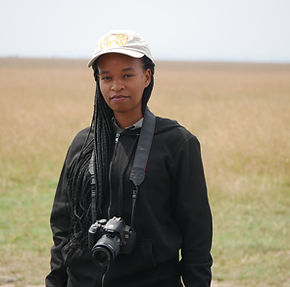

ABOUT THE PROJECT
Rewilding Rwanda is an ambitious wildlife health initiative dedicated to protecting elephants and rhinoceroses in Akagera National Park. Once on the brink of collapse following Rwanda’s civil war, Akagera has made a remarkable comeback. Decades of conservation and restoration have revived Akagera’s grasslands and wetlands, allowing lions, rhinos, and elephants to be reintroduced to a landscape where they once disappeared. Today, it is the only park in Rwanda where visitors can see the Big Five and a powerful example of how conservation and community can restore what was lost.
But restoring species is only part of the story. As more wildlife returns to the park, new challenges emerge, especially around health. Disease, human-wildlife conflict, and climate change all pose serious risks to these growing populations. To meet these needs, VIEW partnered with Conservation Nation launched this project to help build local capacity to monitor and care for Rwanda’s wildlife.

Working closely with Rwandan veterinarians, the University of Rwanda, and park authorities, VIEW is helping build a homegrown wildlife health system that can sustain itself well into the future. Through hands-on training, mentoring, and field-based workshops, we are equipping the next generation of conservationists with the knowledge and experience needed to lead. By investing in young Rwandan veterinarians and providing opportunities to lead research and clinical care, we are building a program that will last long after VIEW’s role has ended, one that is driven by local expertise and committed to the long-term health of Rwanda’s wildlife.
MEET THE VETS
Charline Rutagengwa

Dr. Rutagengwa is a Rwandan wildlife veterinarian based at the University of Rwanda, where she leads VIEW’s collaboration with the university to strengthen wildlife health education and research. A passionate advocate for conservation medicine, Charline is dedicated to protecting wildlife through science-based solutions rooted in local knowledge and experience.
Charline has an interest in the connection between livestock and wildlife health, which began during her veterinary studies where her thesis focused on tick-borne diseases in cattle. She also completed an academic internship with the Rwanda Agriculture and Animal Resources Development Board, where she assisted with laboratory diagnostics, disease surveillance, and community outreach. Today, she brings that same interdisciplinary approach to her work at the livestock–wildlife interface, helping to build a healthier future for Rwanda’s ecosystems.
Since joining VIEW, Dr. Rutagengwa has continued to build her expertise through advanced field training, including completing veterinary internships at both Mount Kenya Wildlife Conservancy and Kenya Wildlife Service, where she gained hands-on experience in clinical and field medicine. She is currently leading a pesticide exposure study in Akagera National Park in partnership with Yale University, using innovative passive sampling techniques to assess environmental contamination risks to wildlife.
David Murenzi

Dr. Murenzi is a Rwandan wildlife veterinarian, with a Bachelor of Veterinary Medicine from the University of Rwanda. David began his career in domestic animal care, completing internships at small animal clinics. He participated in the Humane Dog Population Management project that took place around the Volcanoes National Park. Here he earned a certificate in Small Animal Practices and Field Surgeries. His early interest in animal welfare has since evolved into a deep commitment to wildlife health and research.
Since joining VIEW, David has broadened his expertise through immersive fieldwork and international training. At Wildlife Safari in Oregon, he completed two internships, gaining hands-on experience in clinical medicine, anesthesia, and diagnostics in a semi-wild setting. His career highlights include participating in numerous necropsies and wildlife relocations, securing an Idea Wild grant, presenting at international conferences, and leading wildlife health trainings and workshops.
Currently, David is leading a research project focused on elephant health in Rwanda, investigating gastrointestinal parasites in African Savannah Elephants. His work not only helps inform disease surveillance but also contributes to building a stronger foundation for elephant conservation in Rwanda.











